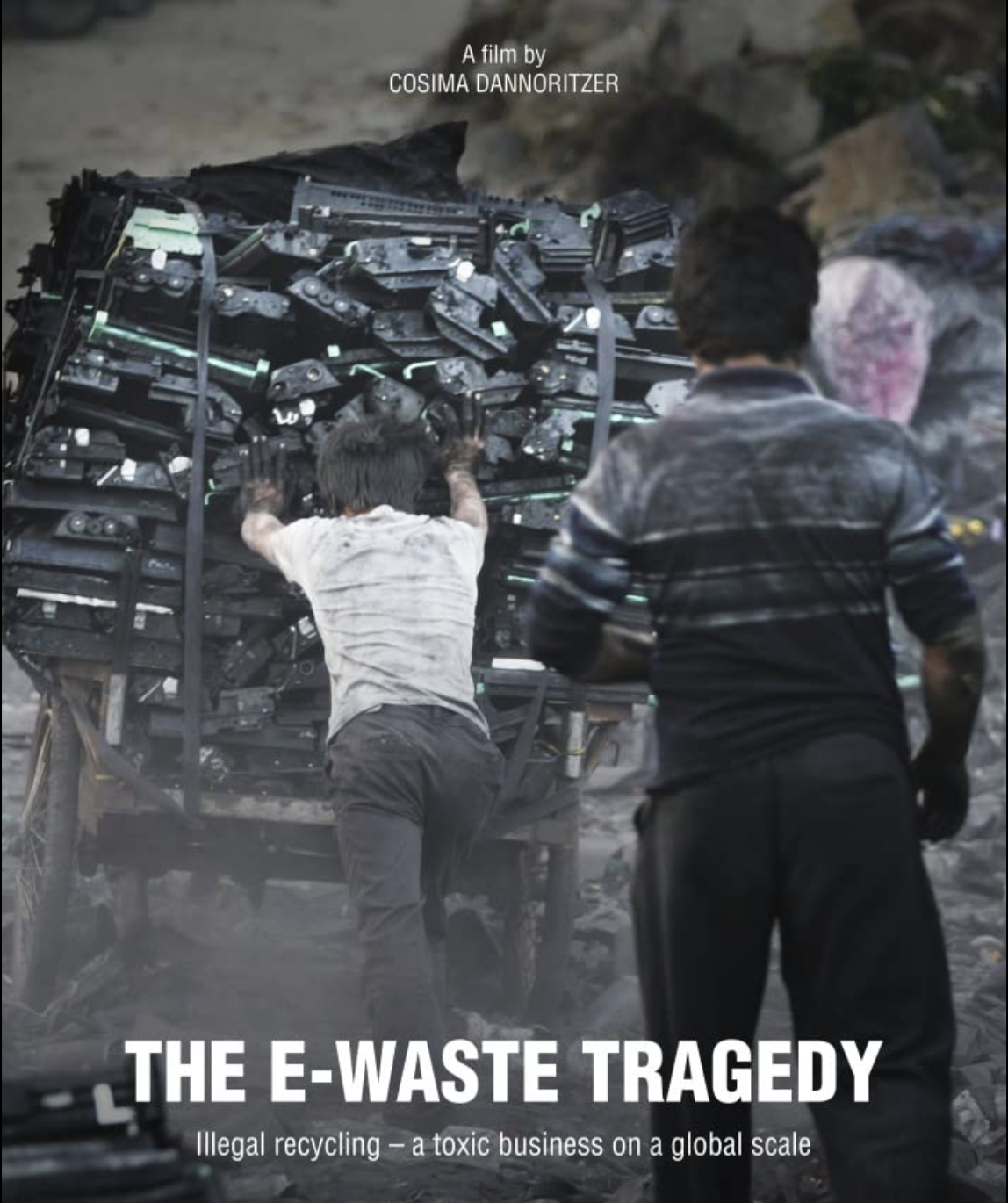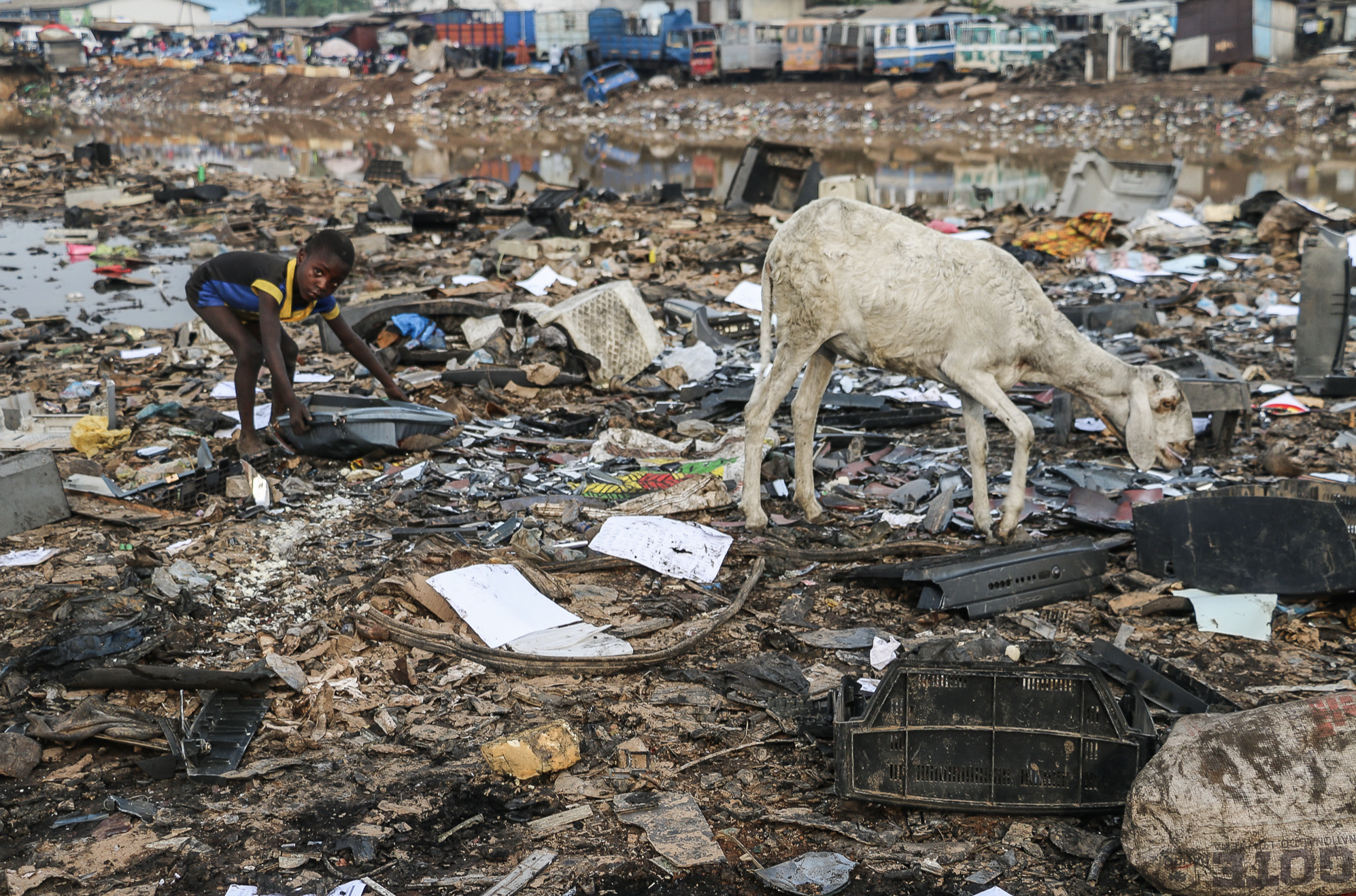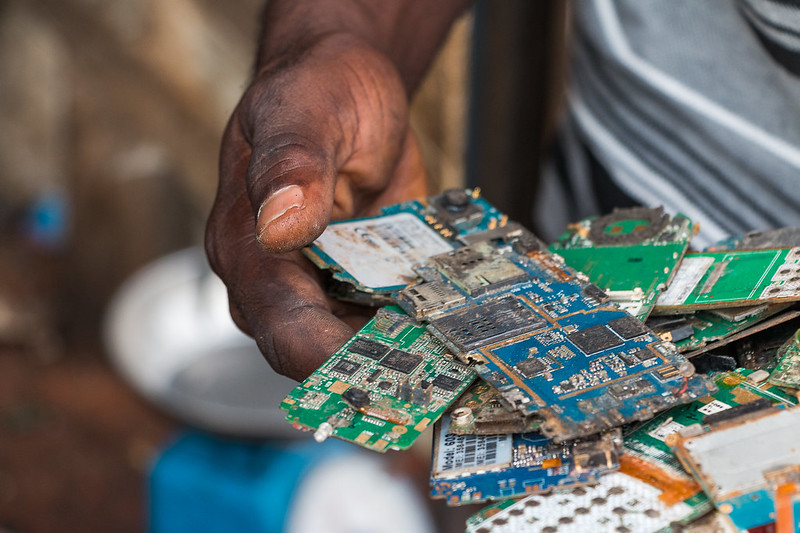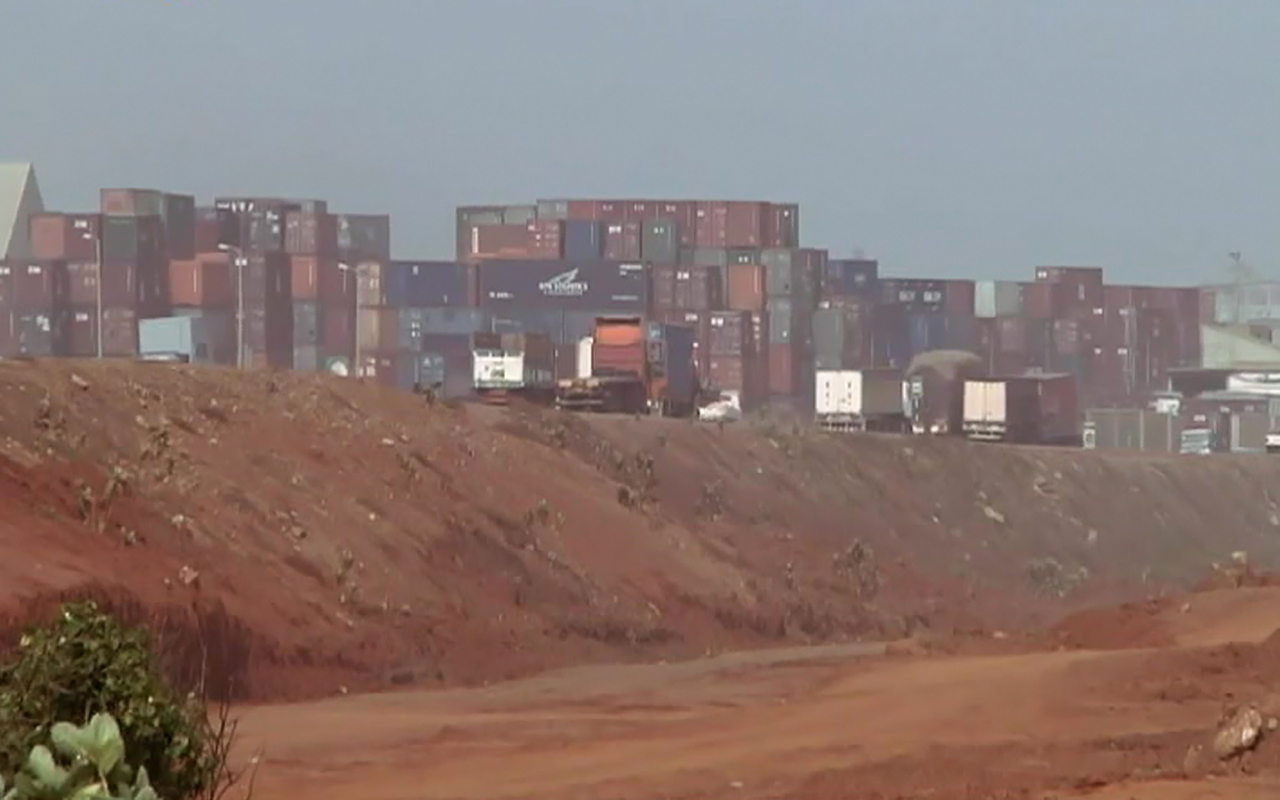"We only recycle 25% of the waste."
"And the rest, where does it go?"
"I don't know."
"It goes to my country."
The breathtaking documentary detective "The E-Waste Tragedy" shot in 2014 by the Franco-German director Cosima Dannoritzer, is focused on illegal traffic of electronic waste to Africa, India and China. This movie was shown in Tallinn on 3 November and brought me to the state of rage and bitterness. This is a piece of art which will tear you out of your zone of comfort and urge people to raise uncomfortable questions.

Credit: IMDB
At the very first minutes we see hell on the Earth - a deadly-looking wasteland in Ghana, where thousands of tons of smartphones, computers and other electronic devices are brought from Europe and the Americas. A bunch of locals, without any protective equipment, disassemble old gadgets, throwing plastic at their feet, smelting valuable metals from the waste and gradually getting poisoned.
"Several containers loaded with e- waste arrive in the country daily from these countries including the US and I am talking of between 250 to 300 containers full of toxic end of life computers and television sets. These discarded electronic items are not functional. They are junk and toxic. Nobody wants them in their backyard because of the health and environmental implications but they are sent to Ghana and dumped all over the place. But in Ghana, there are no mechanisms in place to properly dispose of the e-waste or recycle them," said Mike Anane in his interview long before the film was shot.

Credit: Fairphone
The viewer learns that "third-world" countries are being turned into e-waste dumps, while the consumers in the developed countries believe that their old electronic devices are being safely disposed of. According to the film, e-waste traffic even exceeds drug traffic and seems to ruin people's lives a similar way - making them sick and slowly killing them. Yes, exporting electronic waste is illegal, but, of-course, this doesn't stop the money-greedy cartels. To make the things worse, law-enforcement bodies do not always see waste trafficking as a crime.
The story is focused on Mike Anane, environmental journalist from Ghana, who investigates the channels used by the mafia to traffic the toxic waste to Ghana. He discovers that some gadgets from the landfill wear the label of the organisations they formerly belonged to. Mike Mike embarks on a long journey to visit these organisations and find out how their electronic equipment came to pollute his homeland.

Credit: Fairphone
Mike's list contains the names of some well-known and respected public and business entities such as Barclays bank, Leeds City Council, some hospitals and universities, a police department in London... Even the Environmental Protection Agency of the USA has made a grim contribution to this crime. As we'll see further on, while choosing a recycling operator, the officials turn a blind eye on the further fate of their old equipment.
Through his investigation, Mike reveals how the corrupted European recycling system interacts with the international criminal networks. He learns that the customs and the police are unable get hold of tons of waste which depart from European and Asian ports. With the help of his Chinese counterpart, we'll see how Chinese cities and villages drown in our discarded equipment, where they are dismantled without any care for nature or human well-being. We'll watch damaged computer chips sold like the new ones, putting at risk the lives of our beloved ones.

Credit: IMDB
However, the films shows a way out and the people who already successfully work on the solution. It's simple: we should have our electronic devices repaired instead of buying new ones. Or donate things instead of throwing them away.
What lessons do we learn from this film? If e-waste problem surges on another continent, it's still our problem: the case with electronic chips in China shows it quite clearly. If the future of our planet still matters, we should push companies which produce electronics to accept them back for proper recycling, when the appliances work no more. If possible, we should check the reliability of recycling companies that buy our electronic waste. We should report suspicious activity with the e-waste, if we witness it. In some cases, it's smarter to buy a second-hand quality gadget instead of a new but cheap one. Repair, barter and re-use must become our new way of life, if we want to cut down the stream of waste, reduce the damage to our planet and empty the waste mafia's wallets.
Now in Nigeria waist are now converted to money i hope you know that
How?
My area here any waist they pack it and sell to companies..some use it for Gas..and some use it for other valuable things